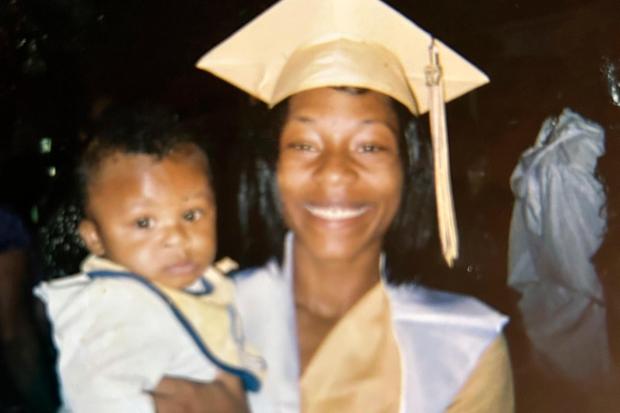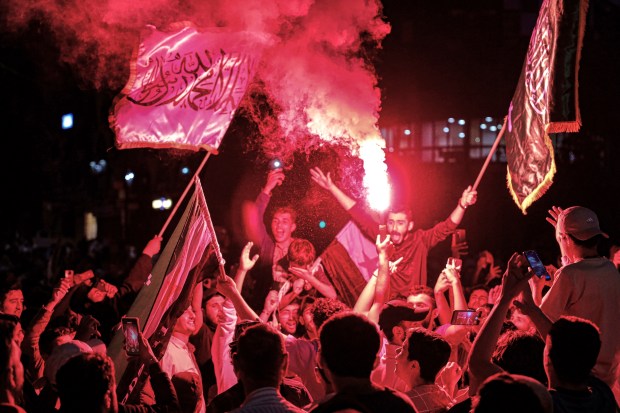Sonya Massey’s last words were “I’m sorry,” but she had nothing to apologize for. She had followed Sangamon County Sheriff’s Deputy Sean Grayson’s directive to attend to a pot of boiling water on her stove. Massey was significantly smaller than the officers and told them when they arrived in response to her 911 call, “Please don’t hurt me.” Grayson was aware of Massey’s mental health condition: The officers had asked if she was “doing all right mentally,” and she shared that she had taken her medication. Nevertheless, when Massey said, “I rebuke you in the name of Jesus,” Grayson pointed his firearm at her. She crouched in fear; he shot her at close range. Grayson’s actions demonstrated a lack of compassion for Massey and a lack of respect for her humanity.
Massey’s killing holds a mirror to the systemic failures in policing. Before his law enforcement career, Grayson was convicted of driving under the influence twice and once with a weapon in his vehicle, leading to his discharge from the military. These incidents, along with his troubling pattern of short stints with multiple law enforcement agencies, should have drawn greater scrutiny and prevented the Sangamon County sheriff’s office from hiring him.
Many advocates and community members have called for law enforcement accountability databases at the state and national levels to identify officers with histories of police misconduct and prevent those officers from moving from one law enforcement agency to start anew at another. Illinois has such a database, and a National Decertification Index (NDI) was recently launched. However, the criteria to include officers in these databases are far too narrow to identify all officers who warrant greater scrutiny.
Tellingly, Grayson was not listed in the Illinois database and had not been decertified for entry in the NDI at the time he shot Massey. The impact of these databases is also limited because local law enforcement agencies have complete authority over hiring, management and accountability decisions and full discretion to use these databases — or not.
Leaving aside Grayson’s checkered record, the criminal legal system failed Massey for another reason. Approximately 1 in 5 fatal police shootings involve people with mental illness, and not all the involved officers have histories of misconduct, according to a Washington Post analysis.
Both Massey and her mother had called 911 the day before she was killed. Across the country, 911 call centers are developing protocols to better screen whether mental health is at issue in a call and identify when a behavioral health response without police is appropriate. These screenings include embedding mental health professionals in the call center to help triage calls more effectively or transferring calls to 988, the new three-digit number for mental health support, or to confidential local or specialized hotlines such as Call BlackLine.
None of these improved screenings appears to have been used when Massey and her mother called 911. Instead, her mother was tragically prescient during her 911 call the day before Massey’s death when she feared “combative” police officers who might hurt her daughter.
The behavioral health system also failed Massey. As a general matter, Black people often receive inadequate mental health services, leading to more severe and prolonged symptoms and worse outcomes, such as an increased likelihood of involuntary treatment. Massey apparently sought inpatient treatment in the weeks before her death but was released without appropriate follow-up. During the same period, Massey also reportedly spoke with members of a local mobile crisis team, a team with expertise in mental health and crisis de-escalation that can respond to mental health crises instead of police. Mobile crisis teams can play an important role in stabilizing a person after the immediate crisis has passed, but should also engage with the individual over subsequent days and even weeks to connect them to housing and community-based services. After Massey contacted the mobile crisis team in her area, it is unclear whether she was linked to available services or whether there were simply no community-based services in Springfield and Sangamon County to meet Massey’s needs.
What is clear is that Massey knew she needed help but did not receive it.
Multiple system failures — not just the actions of a rogue officer — caused Massey’s death. This unacceptable tragedy is a wakeup call for national and local leaders to ensure that community-based, trauma-informed and culturally responsive mental health services are available to everyone in need.
Black people, who have suffered the most from these system failures, and people with mental health conditions must be centered in the development of effective mental health support that can better respond to crisis situations. It is imperative to develop and implement these changes now, to avoid future victims of police killings like Sonya Massey.
Puneet Cheema is manager of the Justice in Public Safety Project at the Legal Defense Fund. Lewis Bossing is the senior staff attorney at the Bazelon Center for Mental Health Law.
Submit a letter, of no more than 400 words, to the editor here or email letters@chicagotribune.com.





